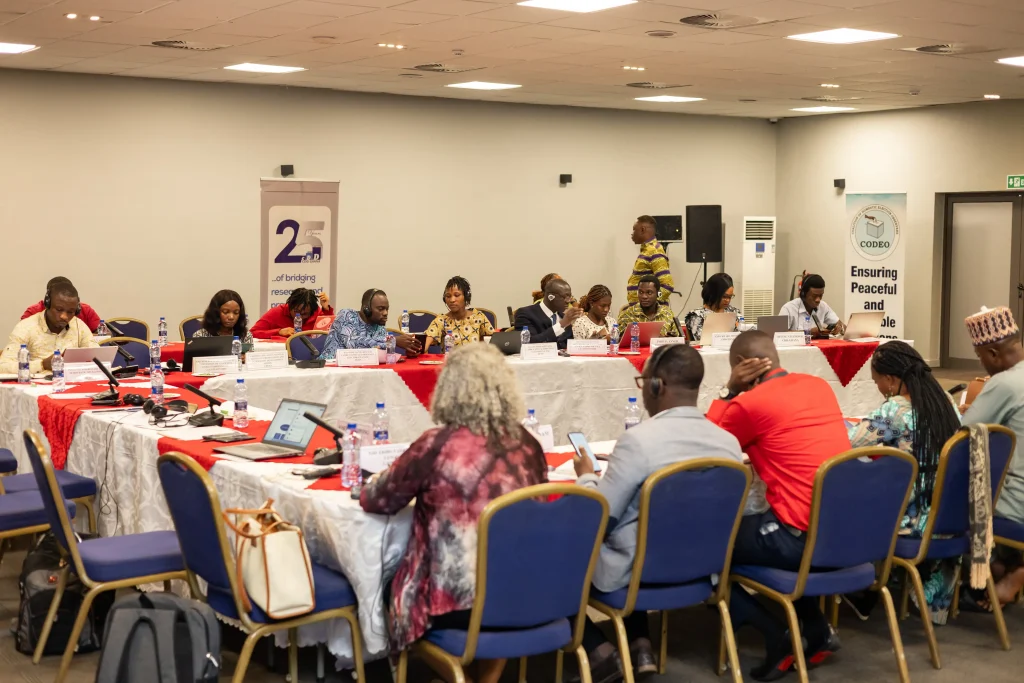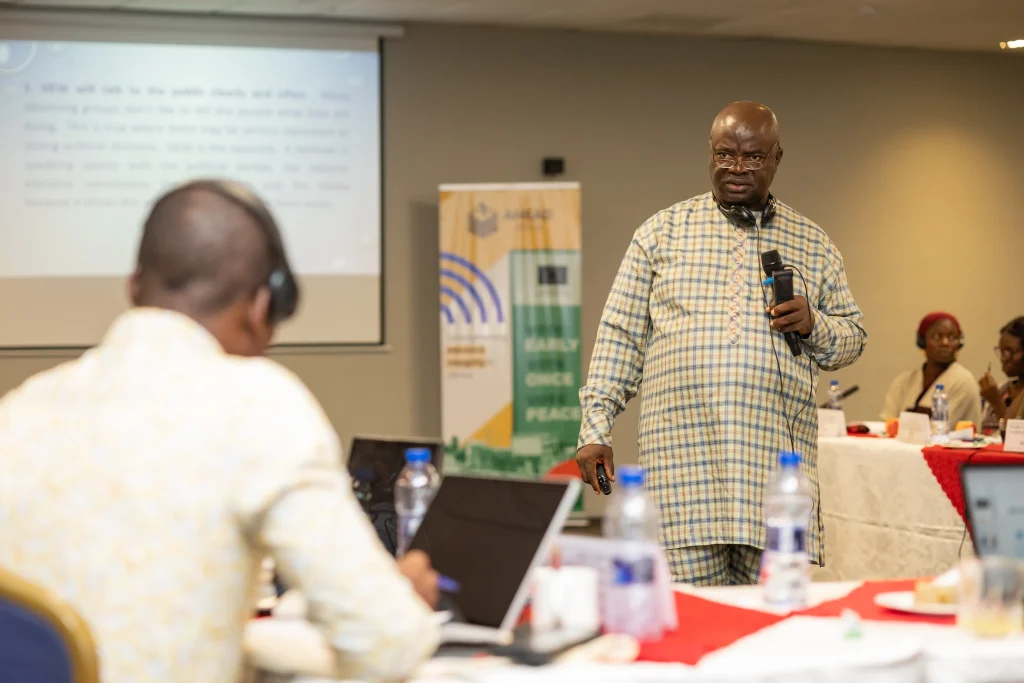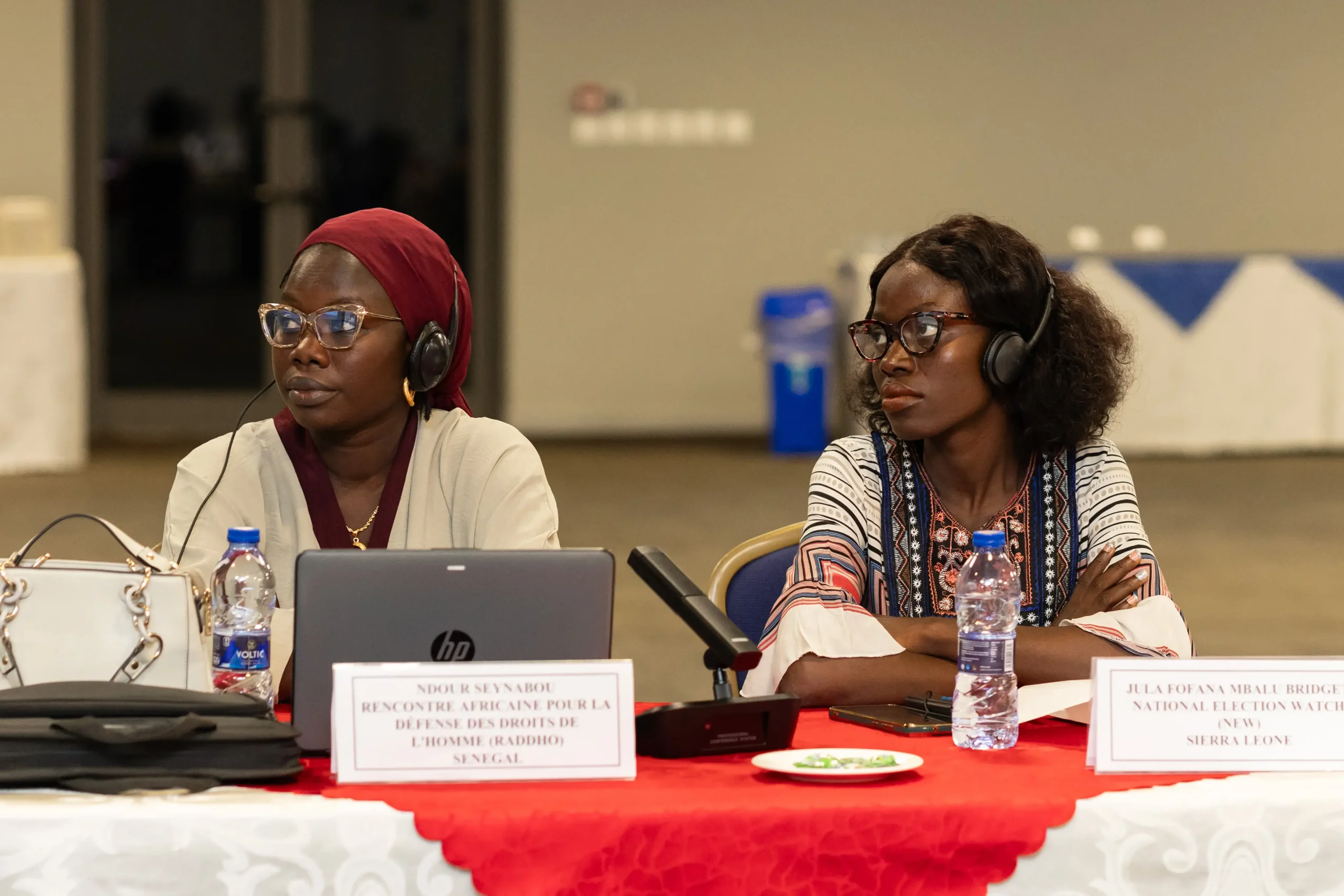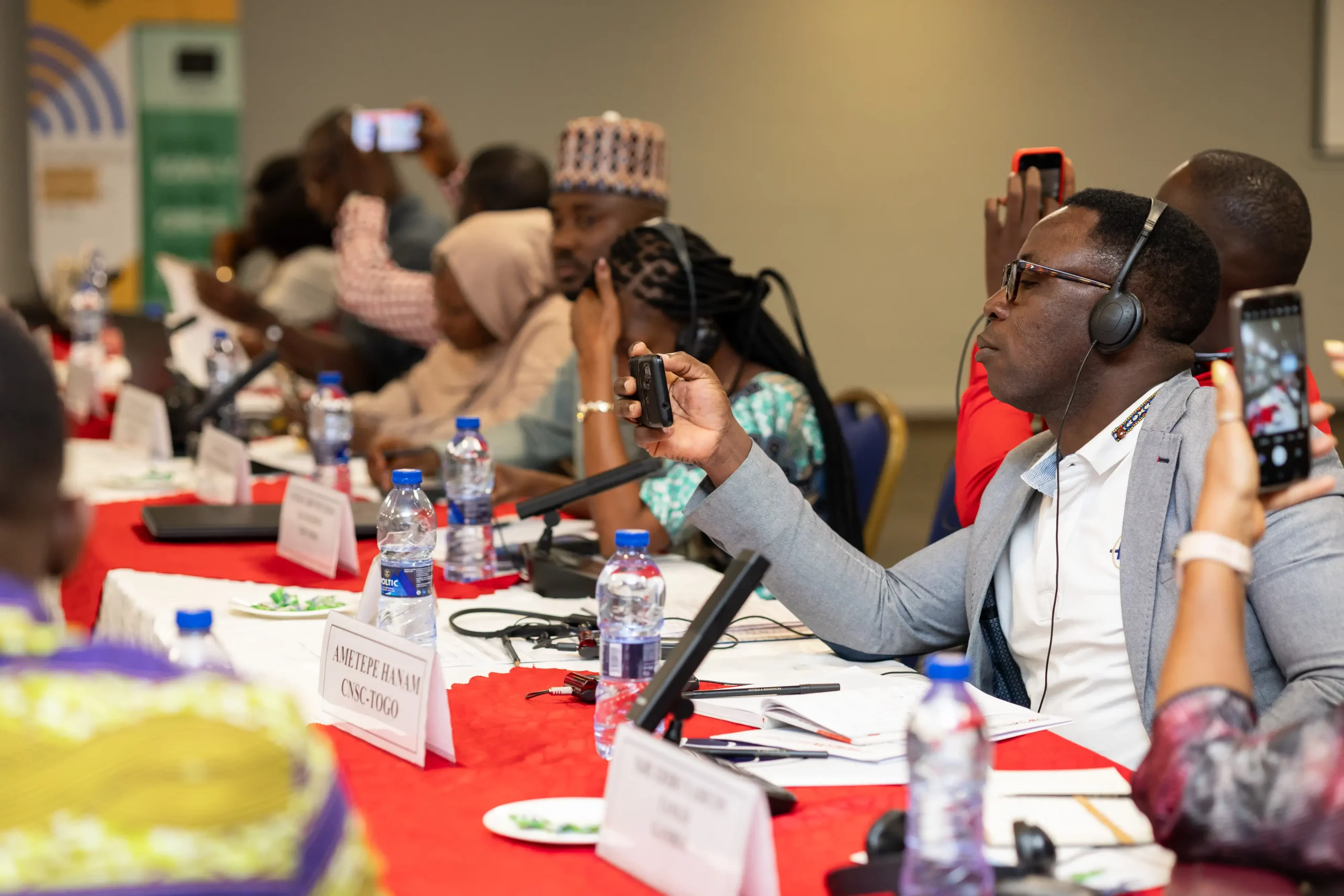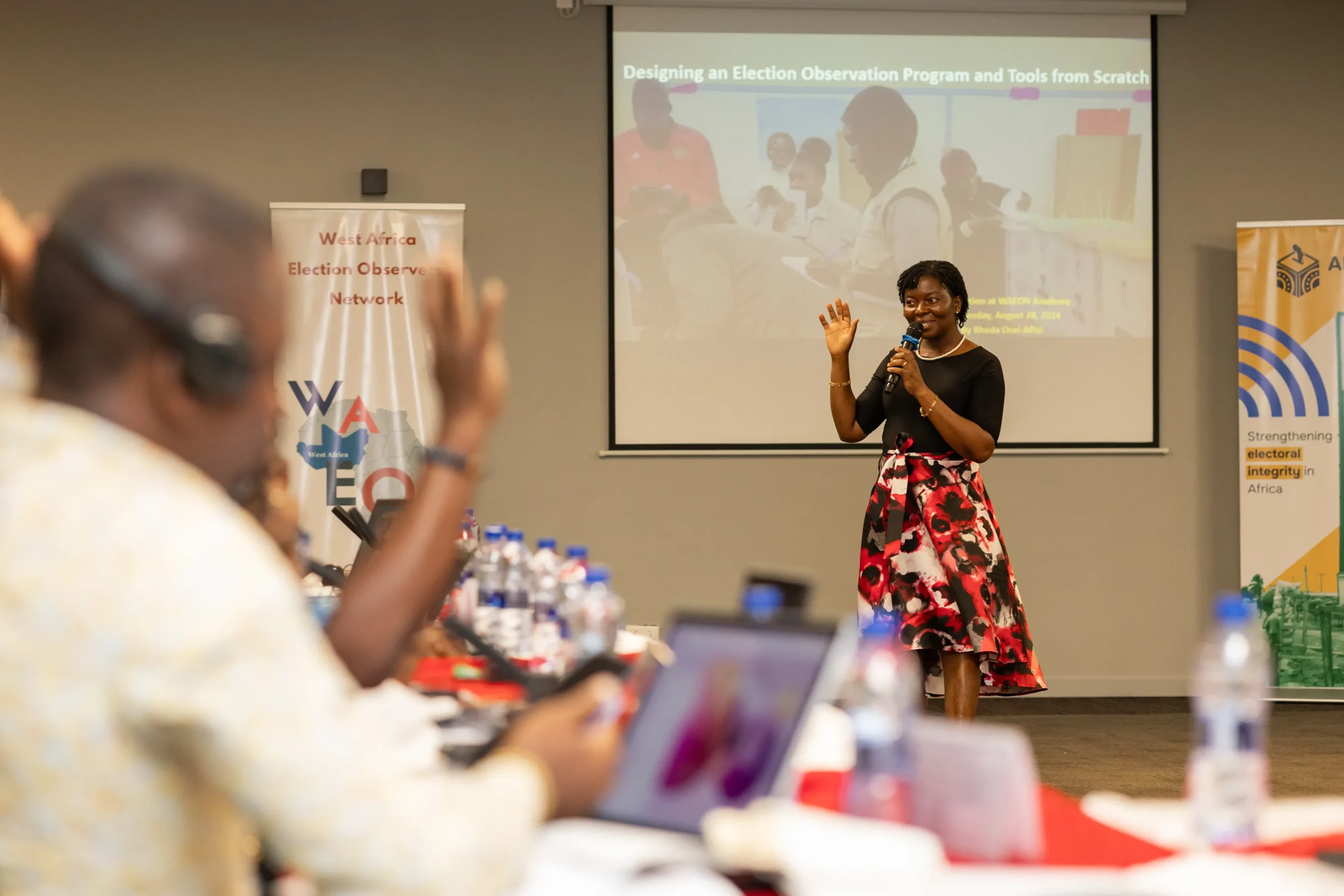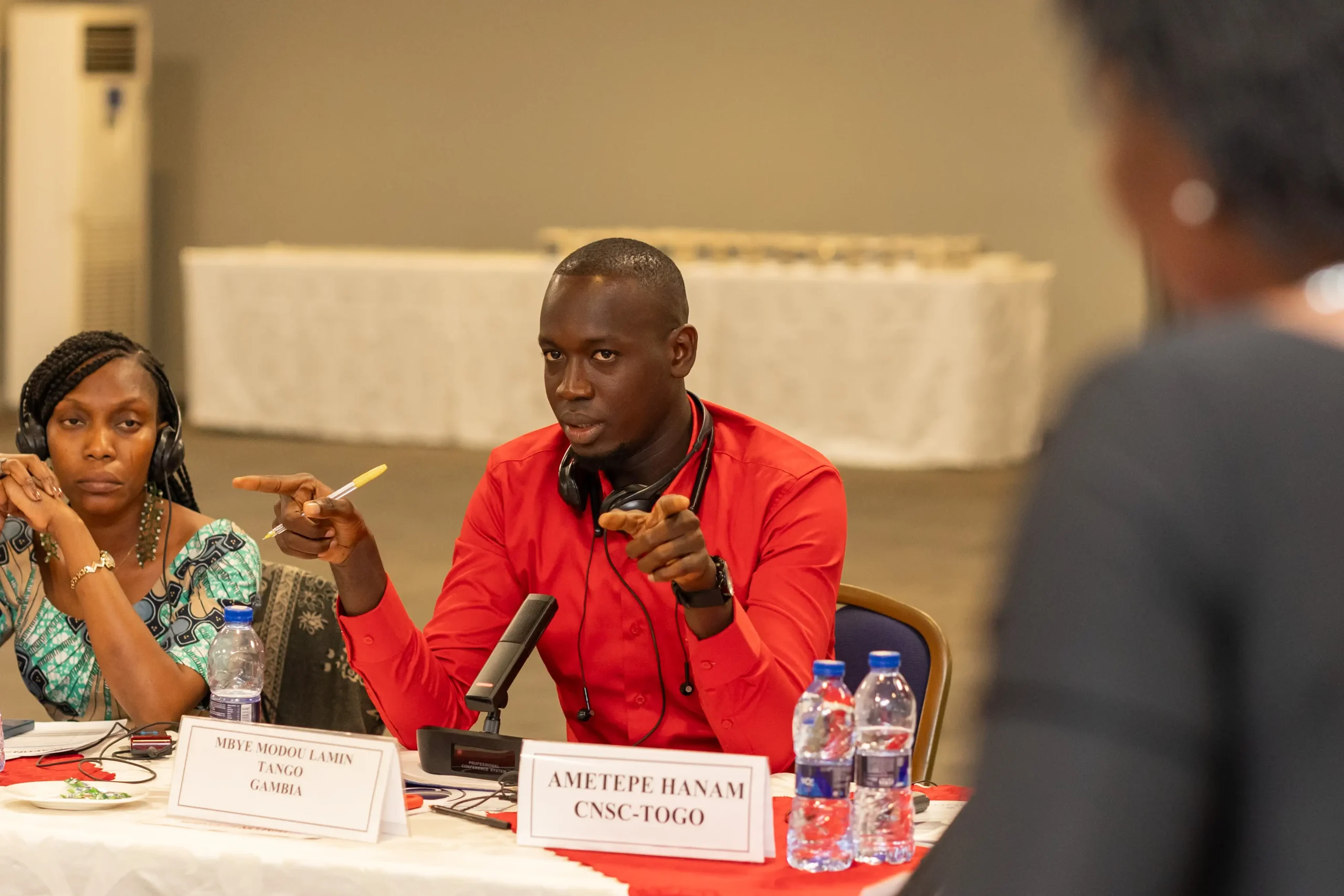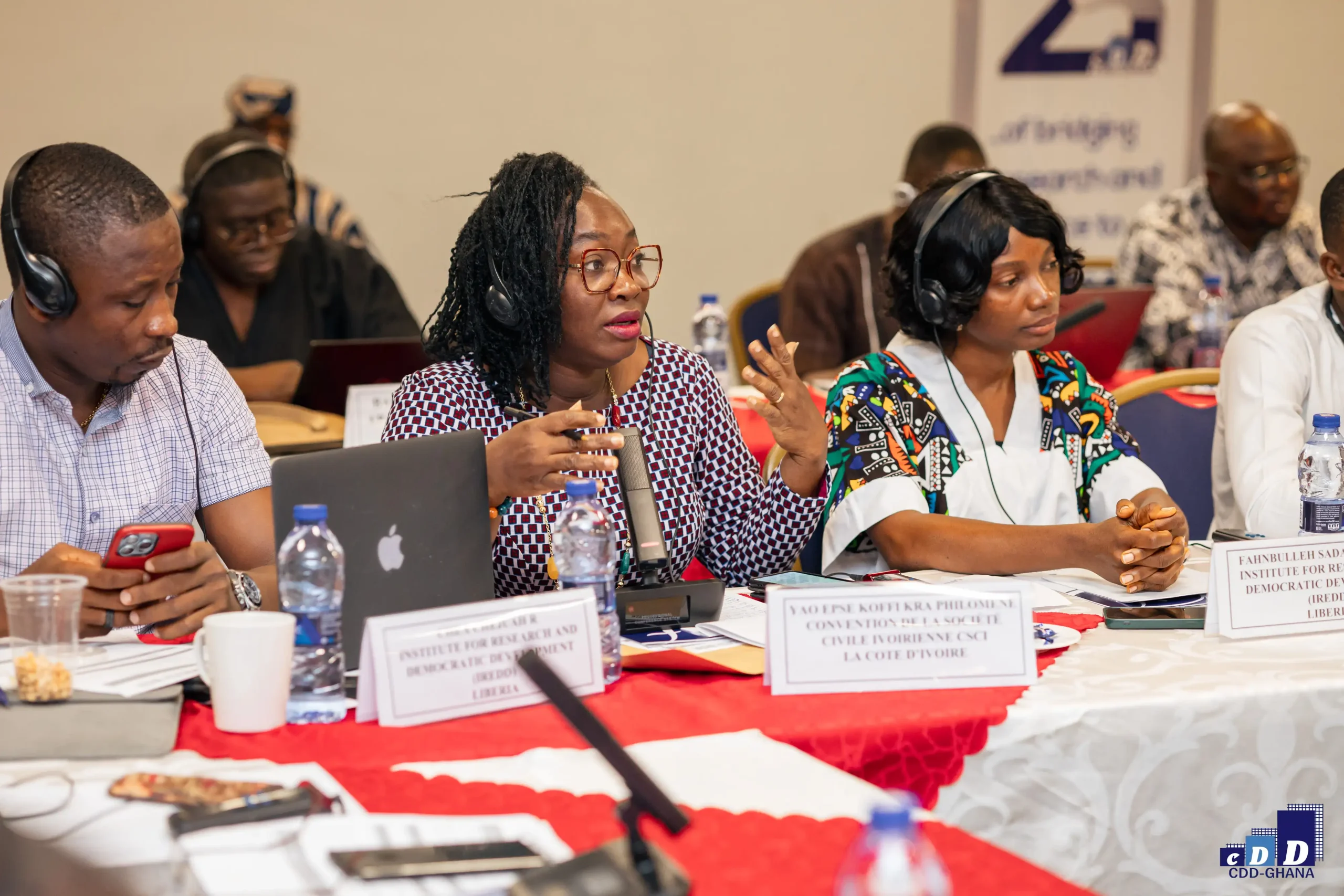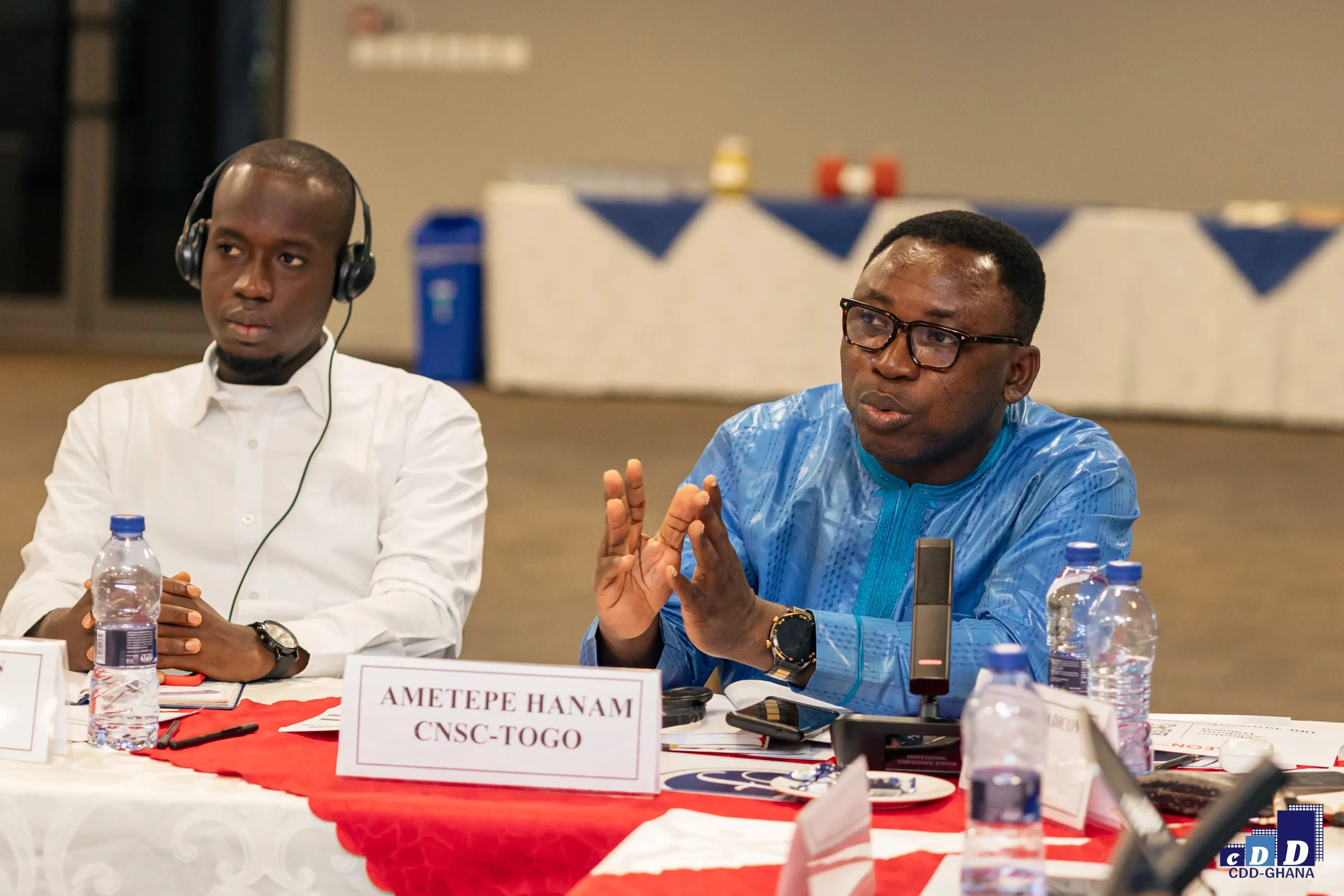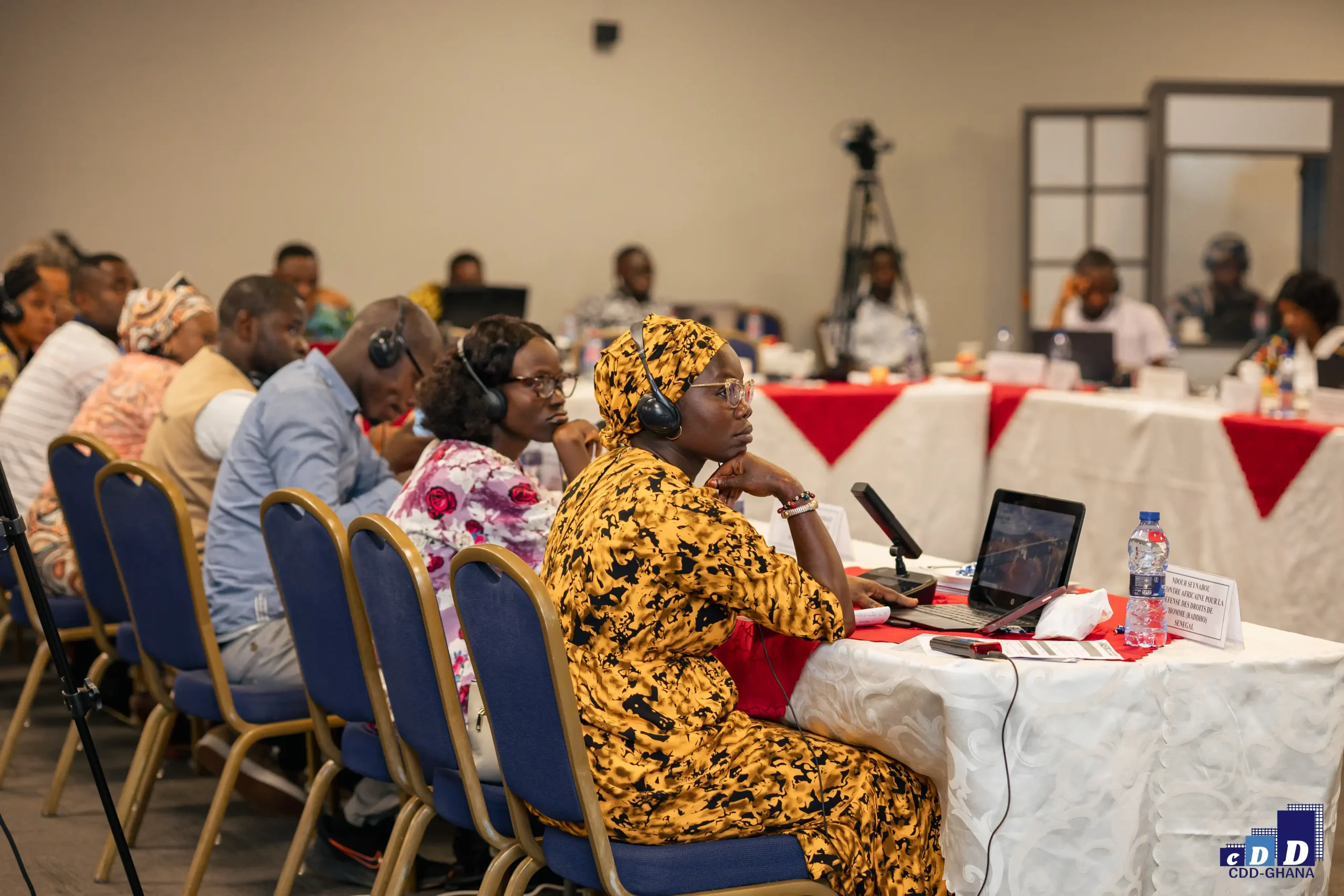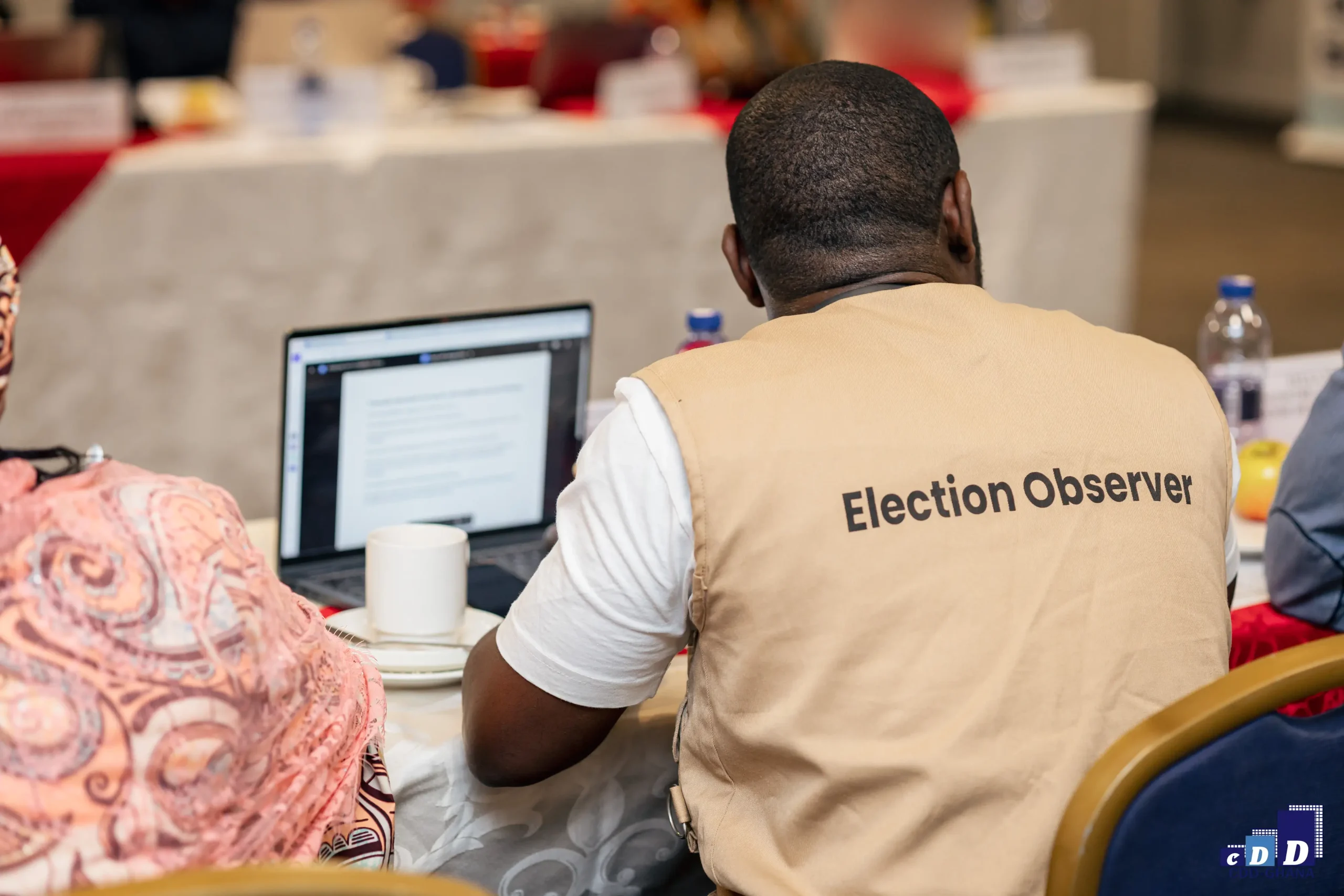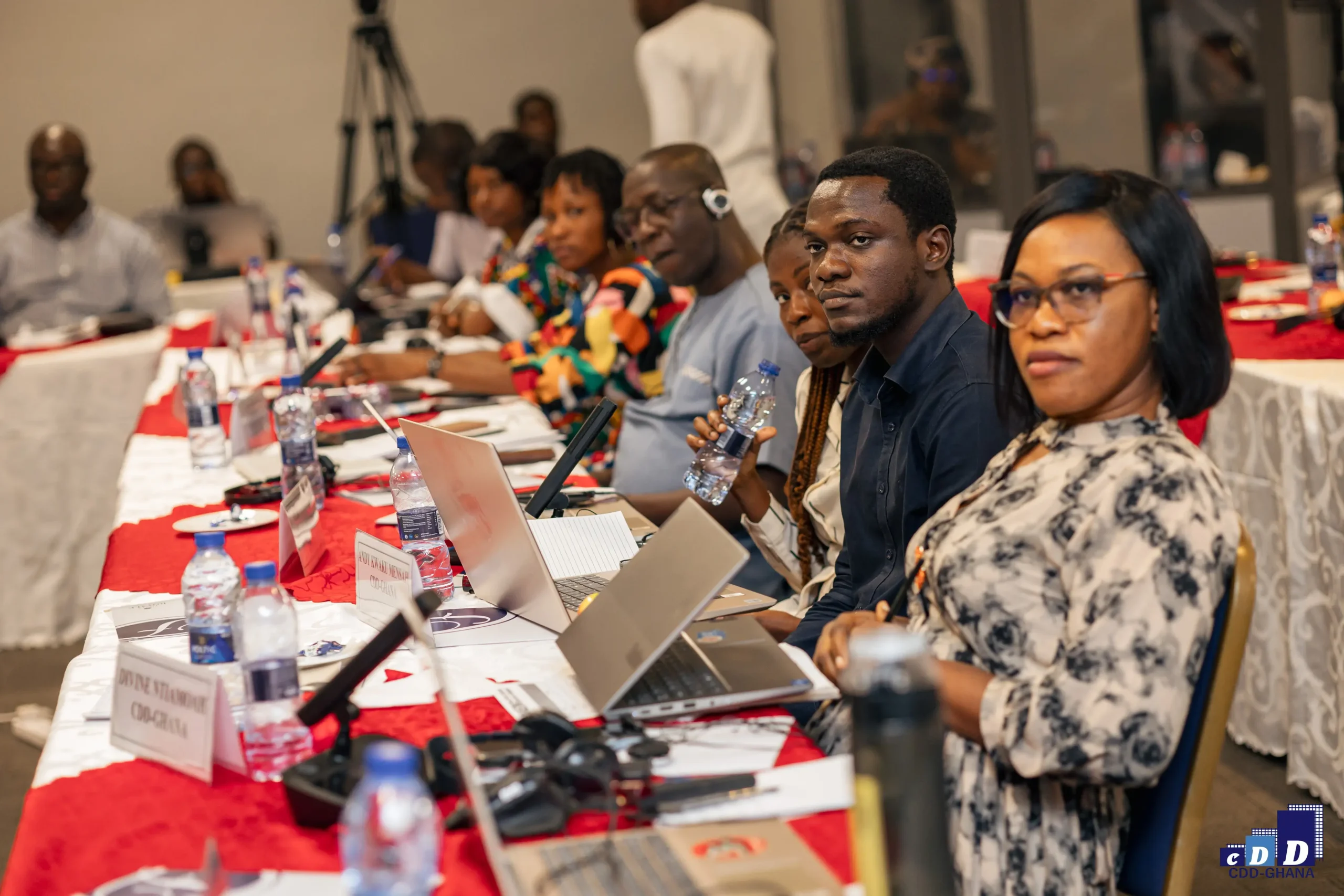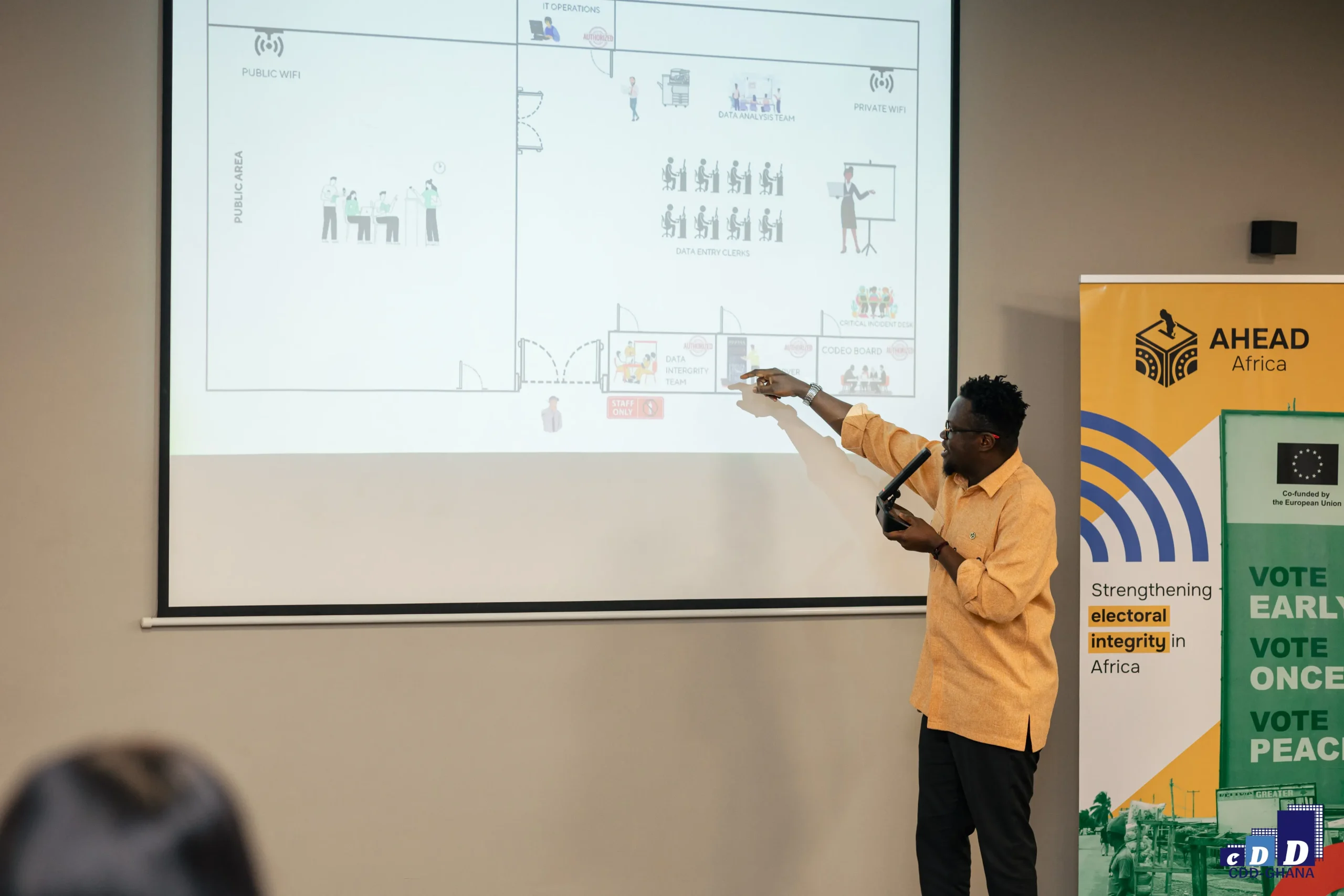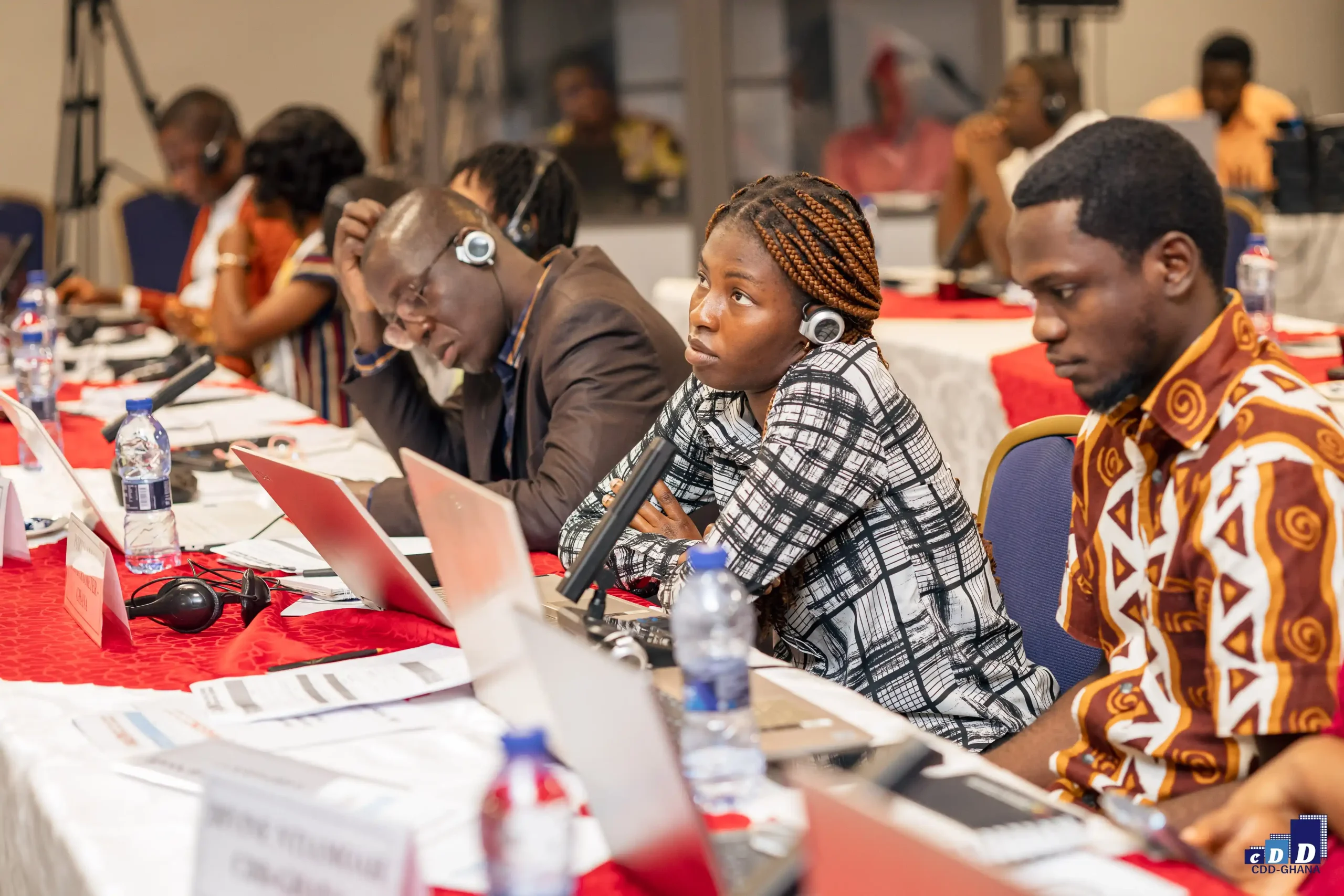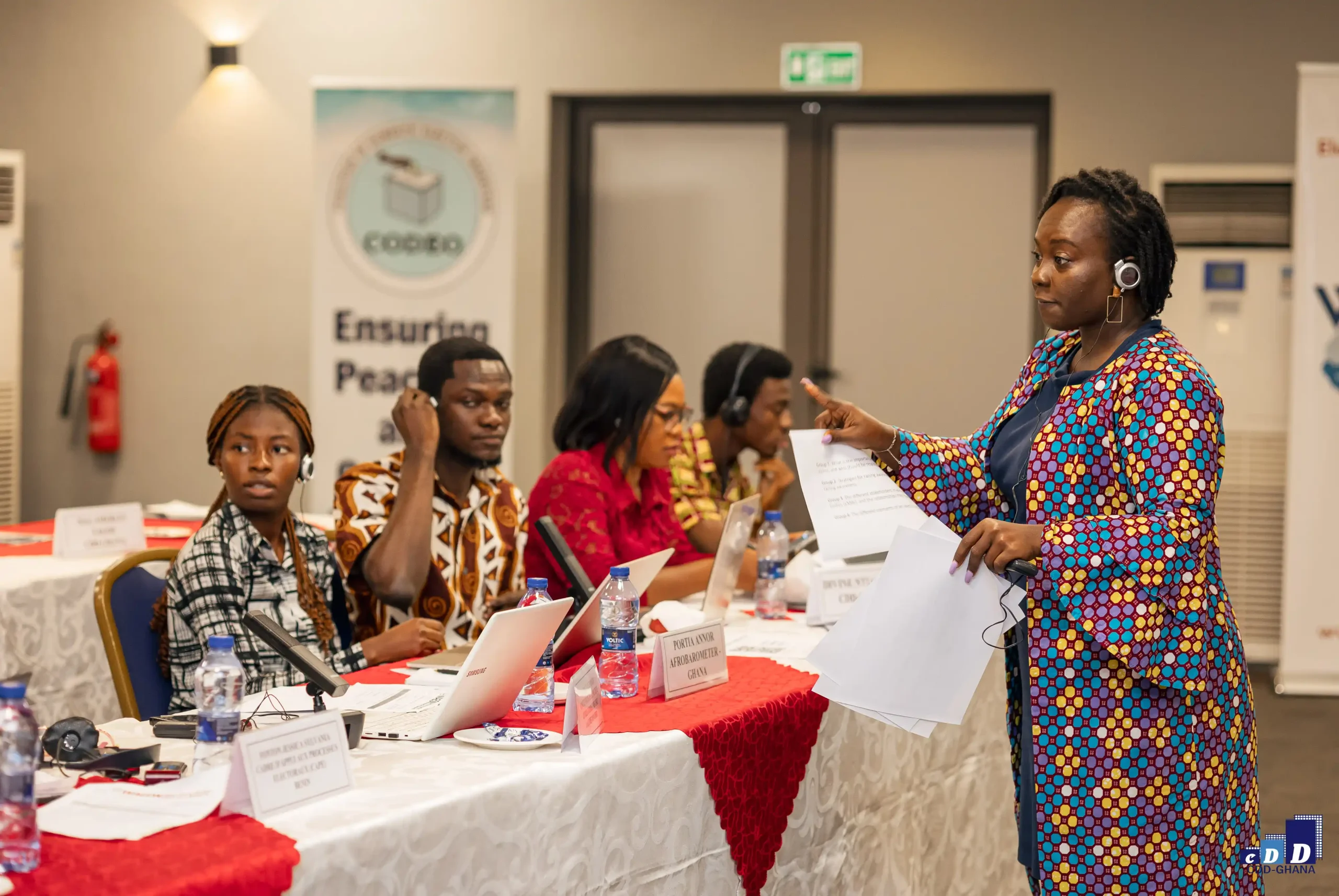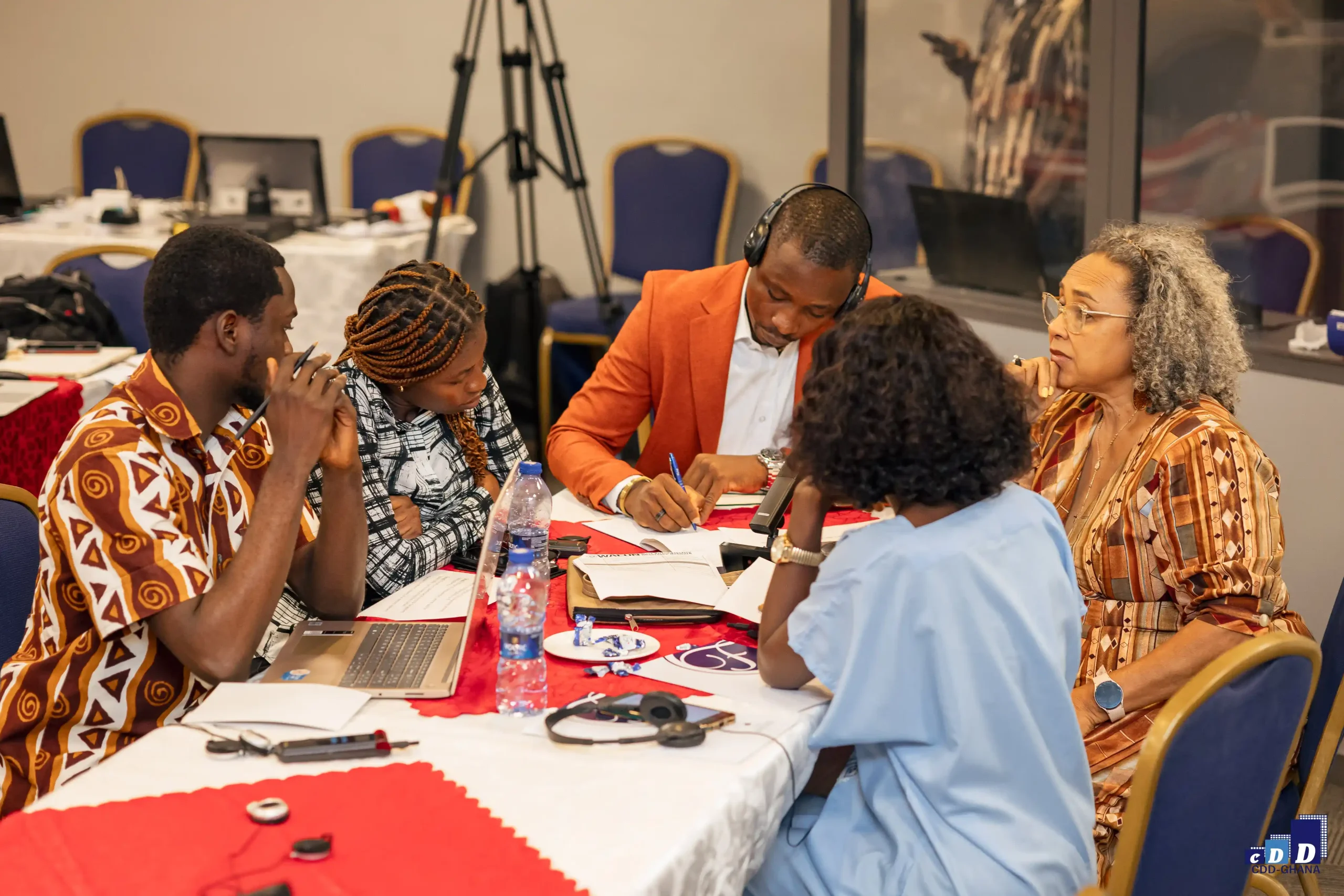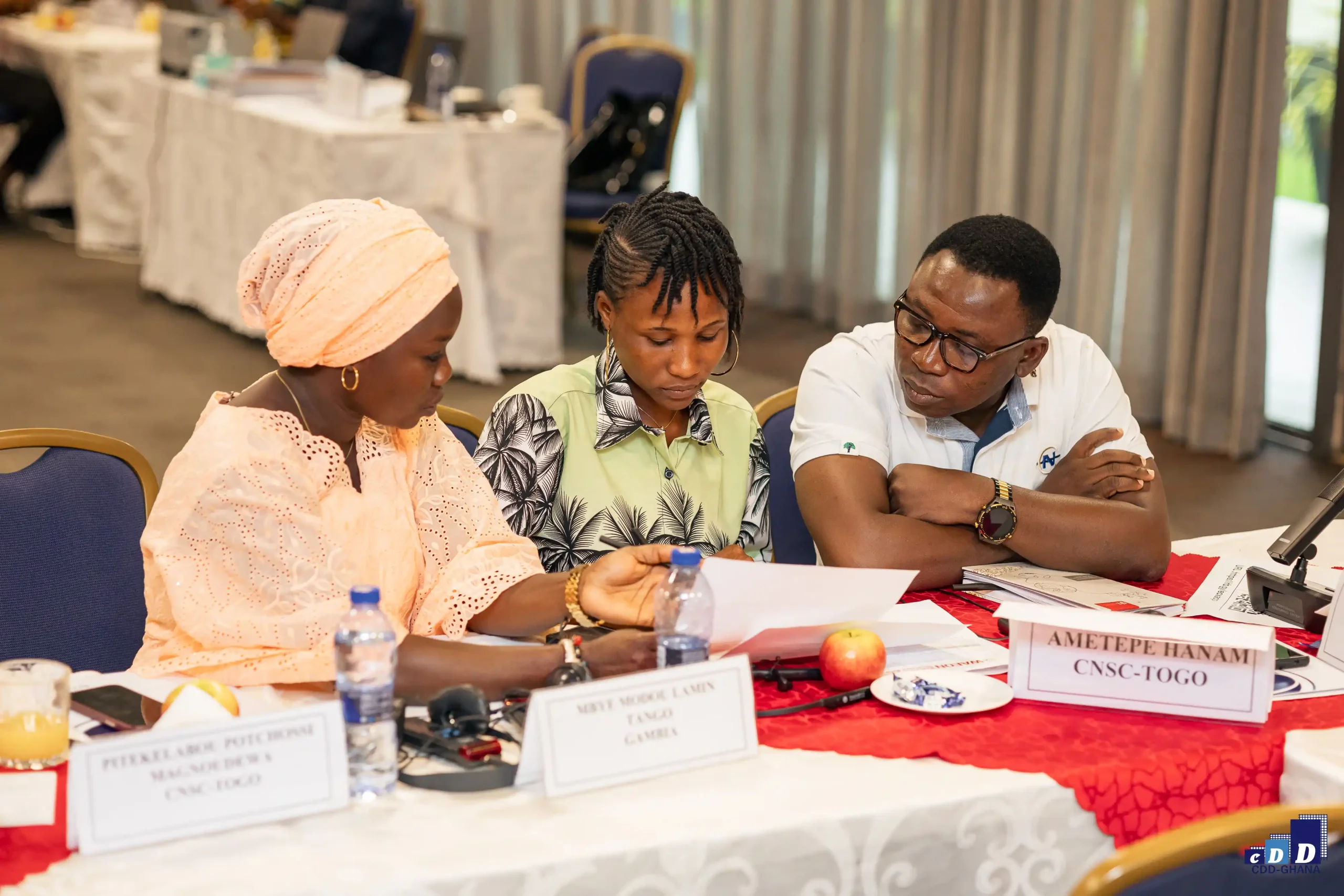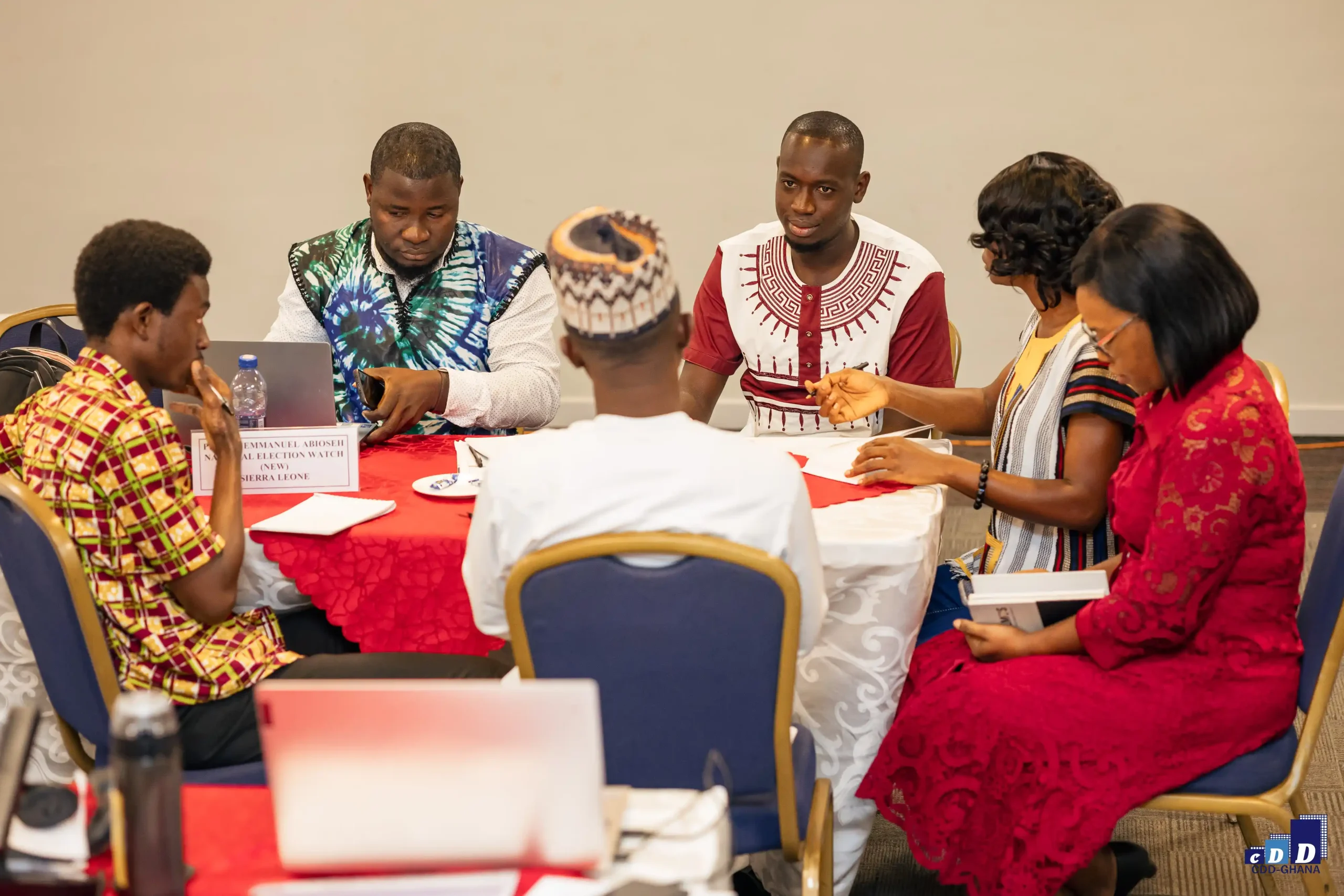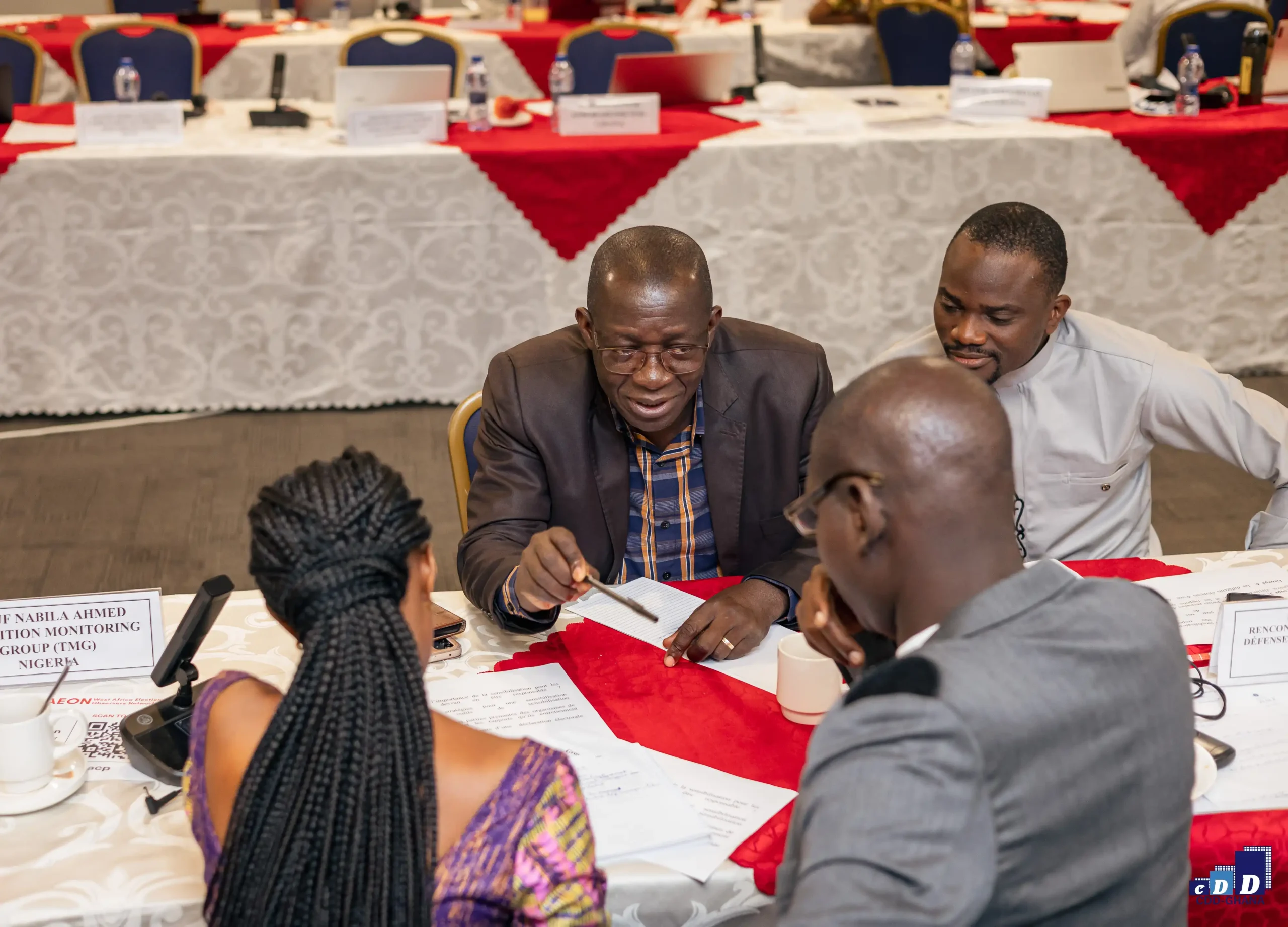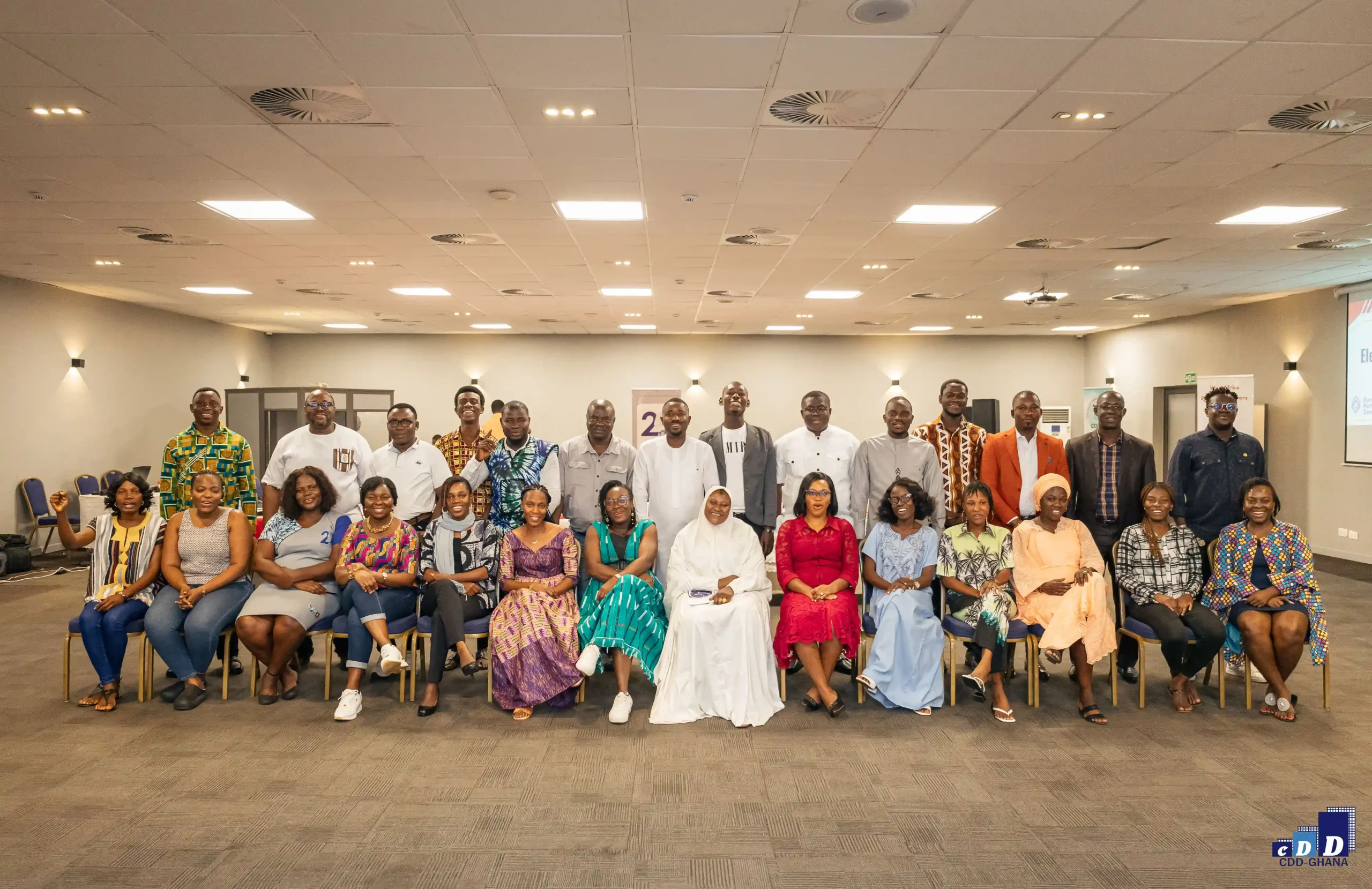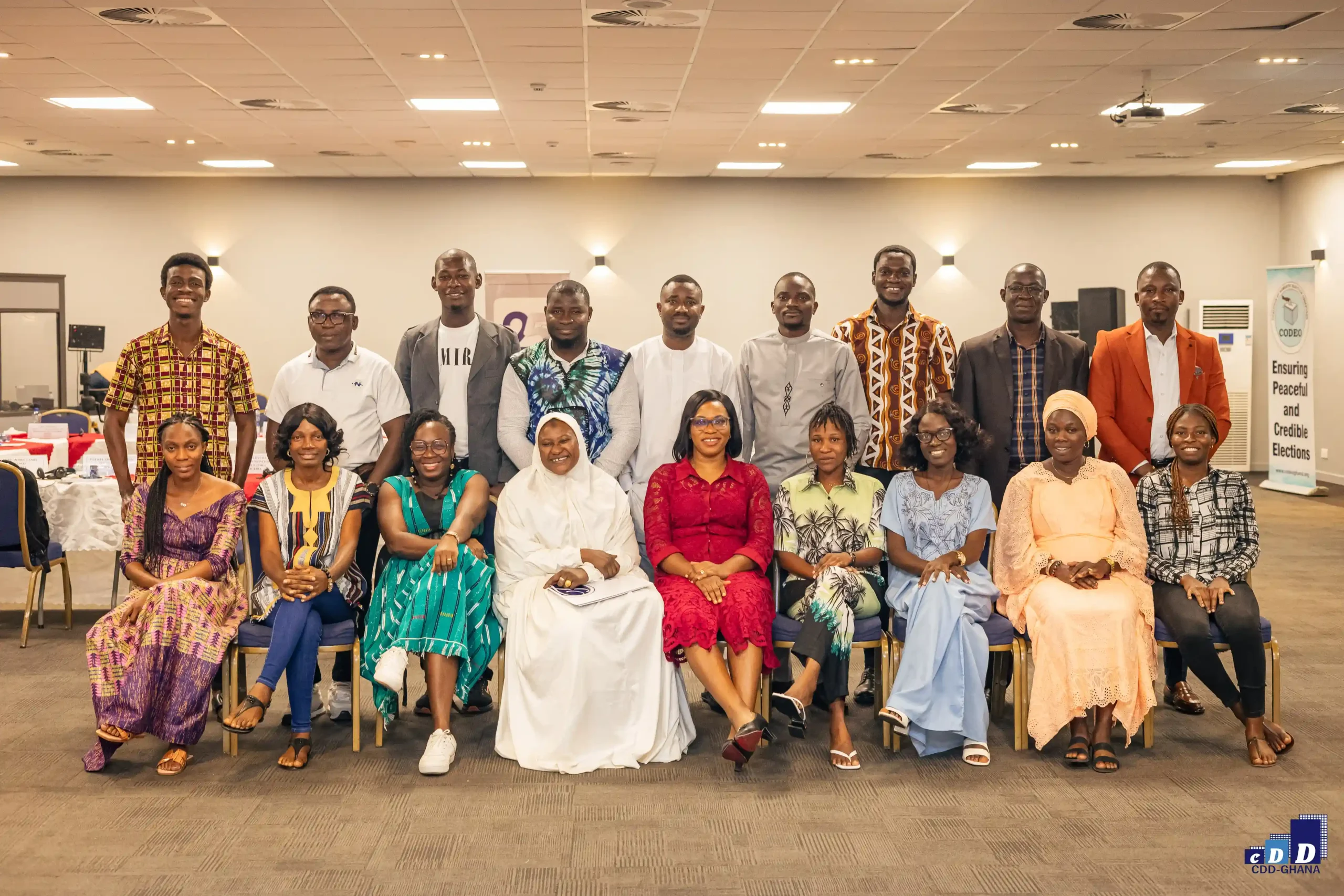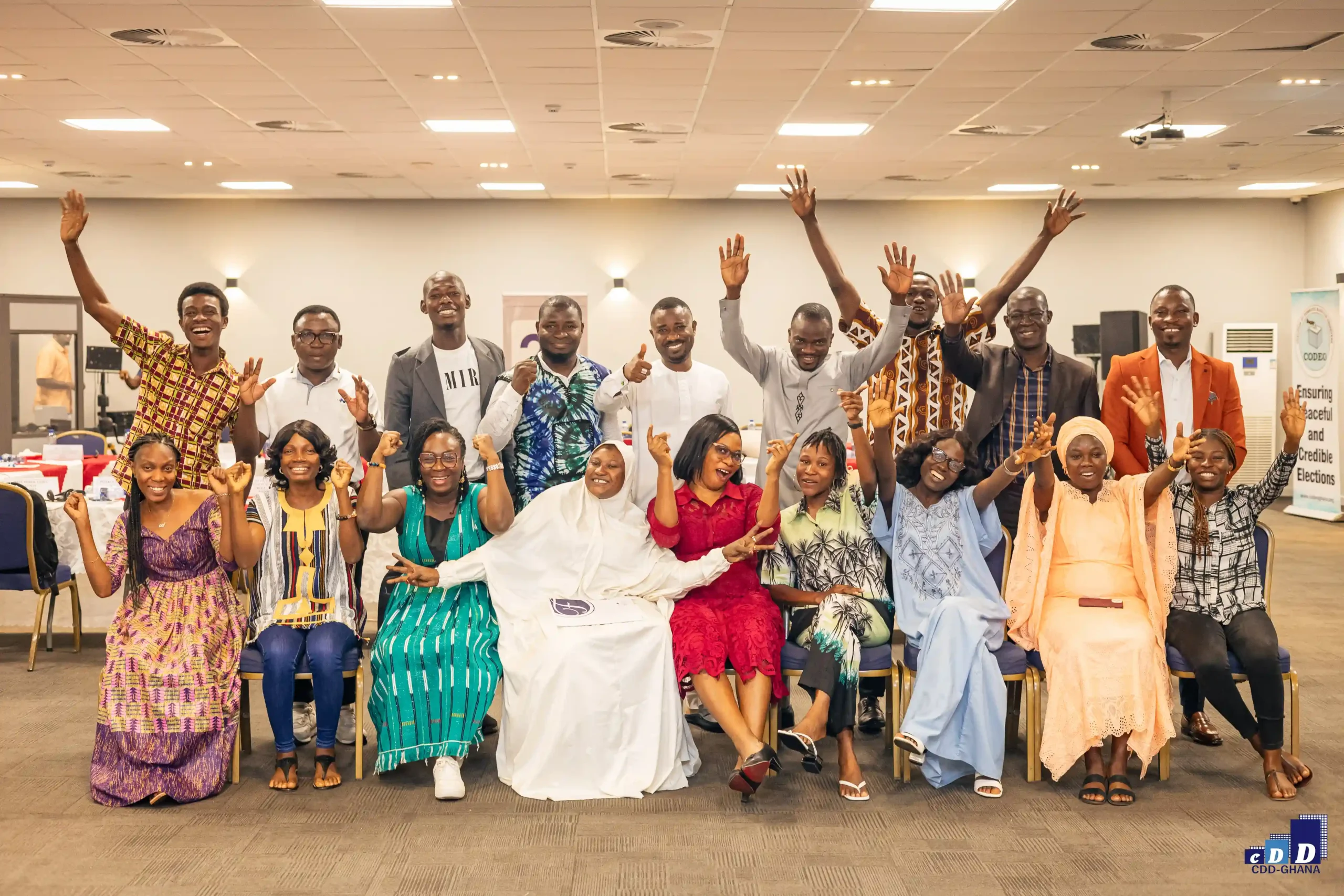During a three-day immersive Election Academy held in Accra from 28 to 30 August, AHEAD Africa partners, including the West African Election Observers Network (WAEON), its secretariat – the Ghana Center for Democratic Development (CDD-Ghana) – and Democracy Reporting International, along with other invited electoral experts, navigated instructively intro questions, such as:
- What steps can ensure the credibility and security of an election observation entity?
- What are the most effective tools and strategies for election monitoring?
- How can one design a solid election observation programme?
- What approaches should be taken when writing an election observation report for maximum outreach?
- How can we advocate for the inclusion of women, youth, and persons with disabilities in the electoral process?
- What strategies are essential for post-election management, focusing on result verification, dispute resolution, and ensuring a smooth transition of power?
Young professionals from WAEON member organisations were equipped with essential skills and techniques for diligent full electoral cycle observation, paving the way for transparent and credible electoral processes within the ECOWAS region.
The raison d’être of election observers
Given the recent instability in the region, “the necessity of observing electoral processes in West Africa remains critical”’, explained Njie Eribo Yadicon, National Coordinator at The Forum for African Women Educationalists (FAGEWAM) in Gambia. The raison d’être of independent and non-partisan election observers was one of the introductory and ice-breaking capacity-building sessions. James Lahai, National Coordinator at Election Watch Sierra Leone, clearly outlined the 3 main purposes they serve: ensuring the transparency and credibility of democratic processes, building public trust in institutions, and deterring electoral fraud. ‘‘They are the cornerstone of a healthy democracy’’, Lahai added.
Building election observers’ credibility
To effectively fulfill their roles, young election observers were reminded of the importance of maintaining a spotless white credibility. “This starts with understanding the core principles of impartiality,” echoed throughout the room. The session underscored the critical need for election observations to remain independent, devoid of any political affiliations or personal biases. Developing a robust observation plan that identifies key focus areas and partners, alongside effective implementation and maintaining clear and respectful communication with the public about activities, is essential for enhancing observers’ credibility, and was highlighted as another important aspect of enhancing credibility.
Analysing online discourse during elections
Beyond working on their credibility, today’s election observers have to also swiftly adapt to the rapidly evolving technological landscape. No longer confined to assessing the physical aspects of the electoral process—such as polling station accessibility, voter registration systems, ballot handling, security and safety measures, conduct of election officials…— they must now straddle and connect the dots between the physical and digital worlds. To truly understand on-the-ground events, it is essential to recognise what is happening in the online sphere, as the digital landscape can polarise, influence, and manipulate elections through the spread of misinformation, disinformation, and hate speech. In light of this, how can election observers effectively tackle the daunting task of sifting through digital noise?
- Examine public opinion: Monitor discussions, key events, and polling data to track sentiment trends over time.
- Analyse social media engagement: Measure likes, shares, and comments to understand content reception and popular topics.
- Study key actors: Evaluate messaging, audience targeting, and platform use to assess influence on public opinion.
- Track public sentiment: Identify the tone of discourse and track shifts in sentiment over time.
- Identify influencers: Focus on individuals shaping discourse, tracking their reach, engagement, and impact.
The content taught during the Election Academy was partially drawn from the Election Observation Manual developed by AHEAD Africa partners the Electoral Support Network of Southern Africa (ESN-SA) and its secretariat, Zimbabwe Election Support Network (ZESN), including chapters written by Democracy Reporting International and Africtivistes. Moreover, participants engaged in more than just theoretical discussions; they undertook practical exercises to effectively apply their knowledge, bridging the gap between theory and practice.
